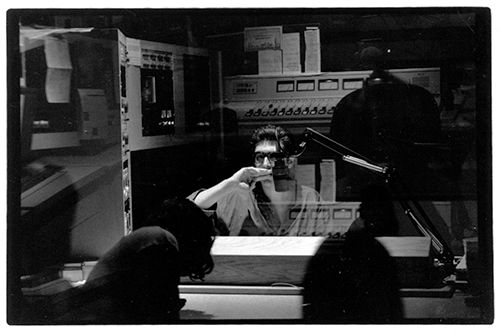Our show is 20 years old today!

Ira writes:
I hate nostalgia so I’ll keep this brief. Twenty years ago tonight, This American Life went on the air for the first time. The name of the show was different at first. I didn’t call the stories “acts” yet. I didn’t figure that out till episode ten. And we were just a local show in Chicago at the beginning. We needed seven months of learning how to make the show before we were ready to roll it out nationally.
We’re celebrating the anniversary with this blogpost and some tweets. If you want to join the celebration –and I hope you do! – tweet a favorite episode or story with #20YearsofTAL.
One of the things about This American Life that I’m proudest of is that the show keeps changing. When it started, the program was mostly about applying the tools of journalism to stories that were too small and personal for most traditional journalists. Then at some point that started to feel tired. Memoirs caught on in the wider culture and seemed like they were everywhere. So we branched out. Started doing episodes built around a single location: a 24-hour diner, a summer camp, an aircraft carrier. We decided to tackle the news, but to do it using all the moves we’d learned from the more personal stories.
Lots of my favorite episodes are the ones where we try to do something we’ve never heard of anyone trying before, shows where we invent something new. Like the episode made up of awful-sounding story ideas our parents pitched us (“I’d like to know more about the Erie Canal”), or the musical we did at the Brooklyn Academy of Music, or the show with 20 acts in 60 minutes, or the episode where every story came from ads in a newspaper’s classifieds section, or the episode where the whole show was about the salesmen at one car dealership trying to make their monthly sales goal.
Serial was one of those experiments. What would happen, our co-workers Sarah Koenig and Julie Snyder wondered, if you tried to tell a story – do a piece of journalism – over twelve episodes? Would listeners stay with it? Would they invest in the people and want to learn what happened to them?
Our latest thing: in the last few years, we’re routinely doing a kind of hardcore documentary reporting that we simply didn’t have the staff or money to do for our first 15 years on the air. I love that. Something like our Harper High School episodes (where we documented life in a Chicago school that’d experienced 29 shootings in a year), we sent three reporters to the school over five months; that was unimaginable when we started. Just this year, we did an hour on Israel, two hours about police practices, two hours on school desegregation, an hour with a Somali refugee trying to get to America, an hour in New Orleans’ Lower Ninth Ward, and – one of my favorite things we’ve ever done – the episode by Chana Joffe-Walt called “Three Miles.” That story’s like a fable about two schools and kids from the 99% meeting kids from the 1%.
Honestly, it still feels like there’s so much to do, so much to try that we’ve never tried, so much to explore. It still feels like we’re at the beginning of something.
And now we have allies. When This American Life started on November 17, 1995, there were only a handful of people making stories like we make on the radio. You could fit us all into a minivan. Now you’d probably need a 747, and even that might not be enough. There are so many great shows doing narratives with characters and scenes and humor and emotion: Radiolab, Invisibilia, Snap Judgment, Startup, Reply All, Love and Radio, 99% Invisible, WireTap, Radio Diaries, Mystery Show.
At the top of our very first episode, back in 1995, I talked about how people are always nostalgic for the early days of any long-running program. To make my point, three minutes into the episode, I do a fake-nostalgic rant about the early days of our radio show, even though those early days at that point, began just three minutes before.
"Oh, sure,” I say. “I used to listen to that show back in the first thirty seconds, back when it used to be really good. Remember back when they used to do all that crazy stuff? When they had that guy on the phone? Remember back then?"
Twenty years later, I’m happiest that nobody seems to think our best days are behind us.

